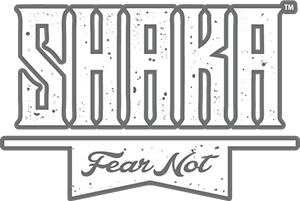Shaka’s Buddhist Beginnings
The story of “Shaka” began around 600 AD, when Siddhartha Buddha reached Japan and was renamed “Shakyamuni” (aka “Shaka Buddha”). Like all buddhas, Shakyamuni features hand gestures called mudras. Shaka Buddha offers one raised hand, meaning “Fear Not,” and the other with tucked fingers symbolizing acceptance and salvation. By 1609, when Japan conquered and assimilated the Ryukyu Kingdom of Okinawa, the word “Shaka” had evolved to mean “Fear not, it’s OK, go for it.” This meaning was brought to Hawaii in 1900 by immigrating plantation workers from Okinawa.
Hawaii’s Shaka Gesture
The “Shaka” gesture was born in 1940 at Laie, Oahu. The official story, as reported by the Star Advertiser newspaper, tells the story of a plantation worker named Hamana Kalili who suffered an accident at the sugarcane mill. Upon recovering, Hamana was reassigned as a security guard on the company train. Kids of Okinawan plantation workers, when trying to illegally hop the train, took to flashing a “Fear not, go for it” Shaka gesture when Hamana wasn’t looking, mimicking the three fingers he’d lost in the accident. In the 50’s and 60’s, the meaning of Shaka became synonymous with Hawaii and surfing culture as tourism to Hawaii grew. To see a statue of Hamana, visit the famed Polynesian Cultural Center in Laie.
Hawaiian “Plantation Rum” Blends
Okinawans also brought traditional Okinawan spirits to Hawaii. Called “Awamori,” such spirits are traditionally distilled from indica rice and aged in clay vessels called “kame.” Awamori is aged and blended by lining up kame in caves with oldest at front and newest at the back. Before the cataclysmic bombings of WWII, Kame lines dated to over 400 years old. When bottling from kame, small amounts are removed from the oldest kame and replenished from the next in line all the way to the back of the kame line. This insures consistent blending and aging.
In Hawaii, this blending technique was used to extend dwindling supplies of awamori with locally-distilling sugarcane spirits creating rice/sugarcane blends that became known as “plantation rum.”
Hawaii Regional Cuisine & #TAKEBACKTHETIKI
Shaka Spirits® Distillery honors the tradition of blended Plantation Rums as the result is an authentic flavor profile that’s ideal for pairing with Hawaii Regional Cuisine as it offers a hint of rice without being ethnically Asian dominant. At the same time, rice distillates reduce the overbearing sweetness of cane spirits which make for better balanced, more sophisticated and true island flavor Tiki Cocktails. If you want a real taste of Hawaii’s plantation past, Shaka is for you.
The Spirit of Shaka
From Japan’s Shaka Buddha, to Okinawan awamori, to Hawaii, to a plantation worker’s lost fingers, to kids jumping on trains, and surfers jumping on waves, comes the “Fear Not” Spirit of Shaka.
Hashtag Factoid: Shaka is the First to Feature a Hastag on Bottle
Shaka Spirits® Plantation Rum was launched September 2, 2018 at the Okinawan Festival in Honolulu. We’ve searched the world for other alcoholic beverage containers (including spirits, wine and beer) with hashtags but are amazed that we can’t find any other bottle with a social media hashtag. There could of course be one hiding out there, so let us know if you find one!
“Soju” Factoid: Shaka isn’t Korean
All spirits products in the United States are required to market under an official spirits product category. Unfortunately, the US TTB (Alcohol & Tobacco Tax Trade Bureau) hasn’t caught up to the idea that Asian spirits can come from places other than Korea (Soju) and Japan (Sake). So the closest official category lists Shaka Spirits as Soju. We do love K-Pop and Koreans though!
Buddhism & Spirits Factoid: The Path to Clarity of Mind
Buddhism is a belief system based in finding one’s flow in life and the universe. It argues for purity of thought. Doing the right thing. Achieving philosophical clarity. Thus, many interpret the consumption of alcohol negatively as intoxicants can cloud one’s ability to think and imperil one’s ability to remain moral. A competing view is that reasonable amounts of intoxicants can serve to “get out of your head,” become more openminded and get in touch with your emotional side. Balance of intellect and emotion seems a key step toward the attainment of true enlightenment. Interestingly, The issue of alcohol is explored in Buddhist writings as one of “intent,” i.e., intent to achieve clarity of mind and seeking of the truth.
At Shaka Spirits® Distillery, we recognize that there are many paths to enlightenment. And while we believe in the value of an occasional drink, we do however urge responsible use of our products.

